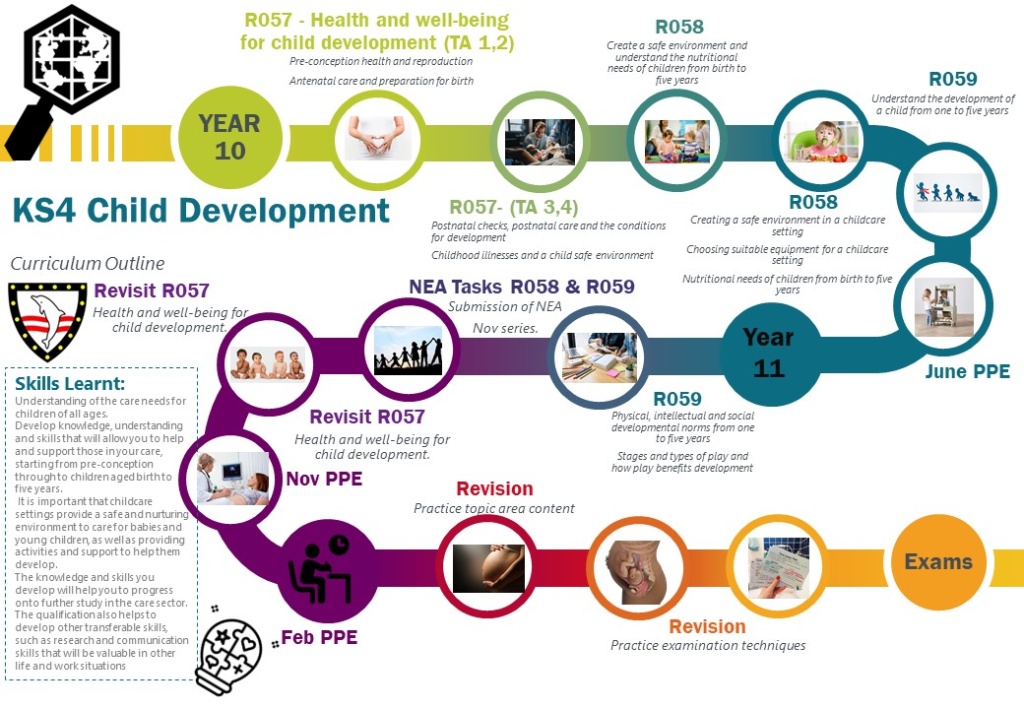Child Development
The Cambridge National qualification in Child Development is designed with both practical and theoretical elements, which will prepare students for further qualifications in childcare, health and social care, psychology, sociology and biology.
The course can lead on to further study at college, studying vocational courses such as Early Learning, Health and Social Care and Diploma Level 3 in Society Health and Development or A-level Sociology or Psychology. It is a useful foundation for many university courses in teaching, nursing, psychology, sociology and childhood studies. Of course, learning about child development is also an important life skill for future parents!
All students will study three mandatory topics:
- Health and well-being for child development
- Understand the equipment and nutritional needs of children from birth to five years
- Understand the development norms of a child from birth to five years.
The first topic develops students’ essential knowledge and understanding in child development; covering reproduction, parental responsibility, antenatal care, birth, postnatal checks, postnatal provision, conditions for development, childhood illnesses and child safety. Knowledge gained would be of use for further studies in PHSE, biology and other child development qualifications.
In the second topic of study, students will gain knowledge of the equipment needs of babies and young children, nutrition and hygiene practices and students will be given the opportunity to investigate feeding solutions, comparing these to nutritional requirements and evaluating the outcomes. Evaluation skills are developed, which will be of use in further studies in a number of areas.
In the third topic of study, students will gain an understanding of the development norms from birth to five years and the stages and benefits of play. Students will gain knowledge of, and skills in, developing activities to observe development norms in children up to the age of five. This topic will include researching, planning and carrying out activities with a child and observing and evaluating these activities, as well as comparing the child to the expected development norms. Researching, planning, observing and evaluating skills will be useful in further studies as these are transferable skills and can be applied to many subject areas.
A curriculum overview for Child Development can be found here.
Further enquiries should be sent to
